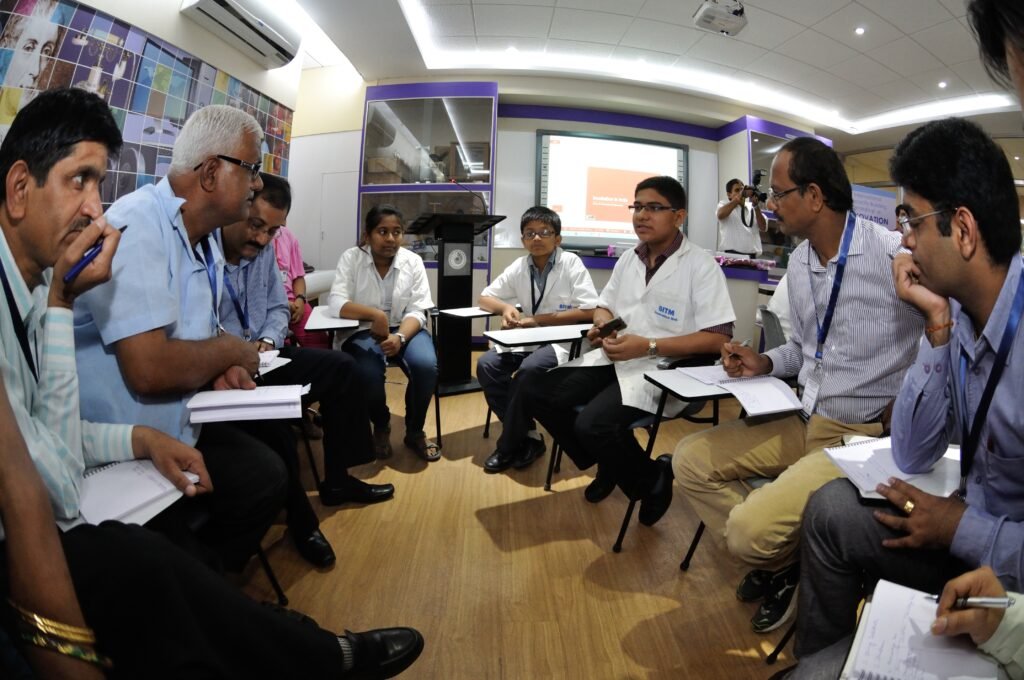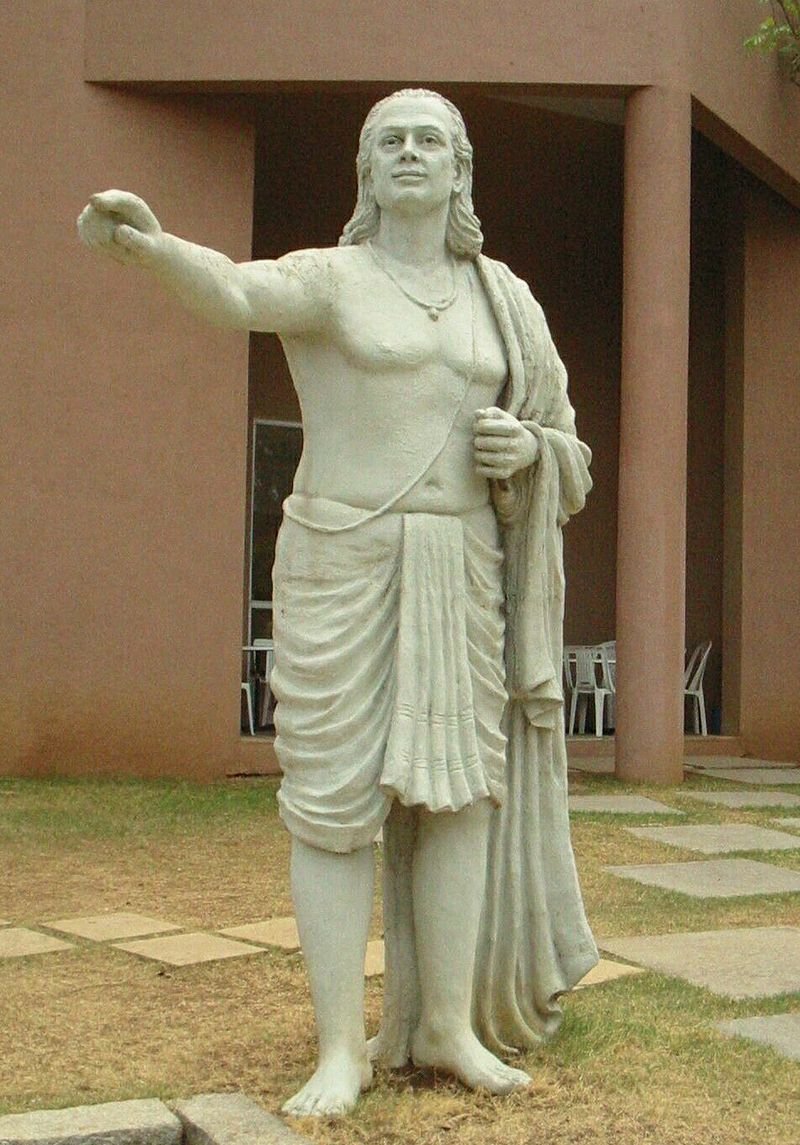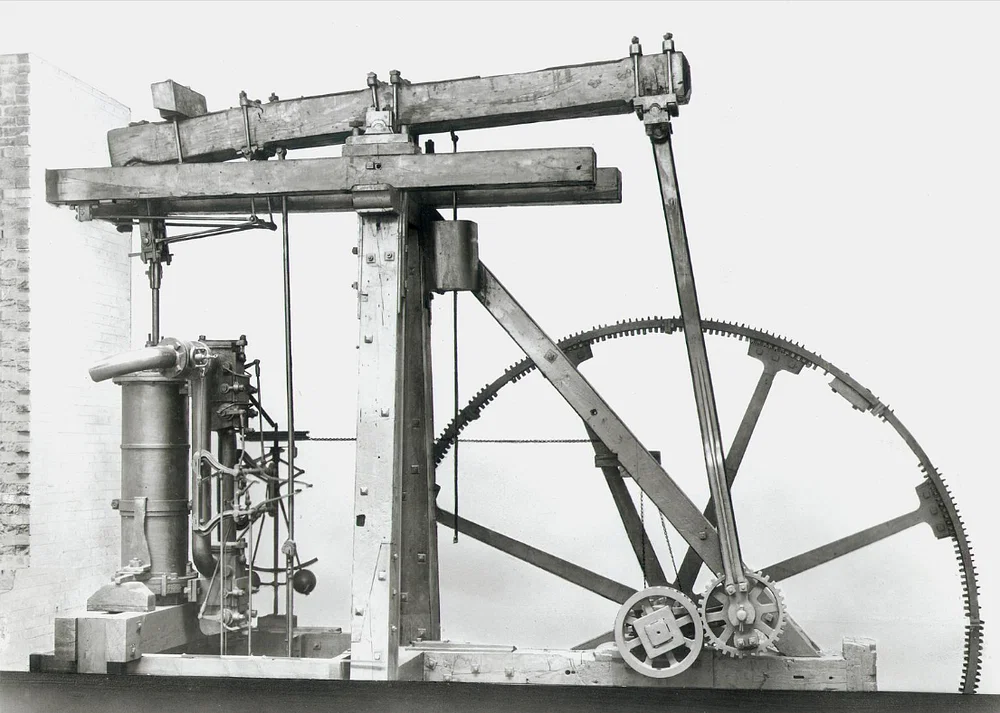Indian Inventions have left an indelible mark on the world, a testament to the rich tapestry of Indian culture and heritage. With its millennia-old history, India has been the cradle of innovation, birthing some of the most significant inventions that have shaped human civilization. This profound legacy speaks not only of scientific brilliance but also of the deeply rooted ethos of Indian culture that values knowledge and exploration.
From the invention of the numerical zero, the foundation of our modern numerical system, to the development of the decimal system, which revolutionized mathematics, India’s contributions to the world have been transformative. These inventions, deeply rooted in Indian heritage, have transcended borders and time, becoming integral to global knowledge.
Beyond mathematics, Indian culture has given birth to the holistic science of Ayurveda, emphasizing well-being and natural healing methods. Yoga, rooted in ancient traditions, has gained worldwide recognition for its physical and mental health benefits.
This exploration of Indian inventions delves into the heart of India’s contributions to the world, showcasing its scientific prowess and the enduring spirit of Indian culture and heritage. Join us on this journey to uncover the marvels that emerged from the land of India, influencing the past, present, and future of humanity.
Table of Contents
What is the main aim of Make in India?

The “Make in India” initiative aims to transform India into a global manufacturing hub and boost its domestic industrial sector. Launched in 2014 by the Government of India, this campaign seeks to promote foreign and domestic investment in manufacturing industries, create jobs, increase GDP growth, and elevate India’s position in the global economic landscape.
Key objectives of Make in India include:
Attracting Foreign Investment
By improving the ease of doing business, cutting red tape, and offering incentives, the initiative aims to attract foreign companies to establish manufacturing units in India. This leads to technology transfer, job creation, and economic growth.
Boosting Domestic Manufacturing
Make in India encourages domestic companies to expand their manufacturing capabilities, fostering innovation and self-reliance.
Creating Employment
The initiative intends to generate millions of jobs by expanding manufacturing industries, particularly for the growing youth population.
Enhancing Infrastructure
To support manufacturing, there is a focus on improving infrastructure, logistics, and connectivity across the country.
Fostering Innovation
The campaign promotes innovation, research, and development to make India a global center for innovation in addition to manufacturing.
Global Competitiveness
Make in India aims to improve the competitiveness of Indian products in international markets, thus increasing exports and reducing trade deficits.
In summary, Make in India is a comprehensive initiative designed to transform India into a manufacturing powerhouse, creating jobs, attracting investments, and fostering economic growth while bolstering the country’s standing in the global economy.

What is India famous for?
India is famous for its rich and diverse cultural heritage, historical landmarks, and vibrant traditions. It’s renowned for its iconic landmarks like the Taj Mahal, a symbol of love and architectural marvel, and the ancient temples of Khajuraho with intricate erotic sculptures. The sacred Ganges River and the spiritual city of Varanasi exemplify the country’s spirituality.
India is celebrated for its diverse cuisine, offering various flavors and spices, including curry, biryani, and samosas. The country is also famous for its contributions to yoga and Ayurveda, promoting physical and mental well-being.
In the realm of cinema, Bollywood produces a vast number of films, while Indian classical dance forms like Bharatanatyam and Kathak mesmerize audiences worldwide. India’s diverse geography ranges from the Himalayan mountains to tropical beaches, making it a popular destination for travelers seeking natural beauty and adventure.
Additionally, India’s IT industry, with tech hubs like Bangalore, is a global player, while its contributions to science, mathematics, and literature continue to influence the world. India’s colorful festivals, such as Diwali and Holi, showcase its vibrant cultural tapestry. With a population representing many languages, religions, and traditions, India’s diversity is legendary and a source of global fascination.
Why India is unique?
India is unique for its remarkable diversity, history, and culture blend. It stands out as a nation that encompasses many languages, religions, and traditions within its borders. This diversity is not merely coexistence but interwoven into daily life’s fabric, fostering tolerance and pluralism.
India’s history is a tapestry of ancient civilizations, empires, and dynasties, giving rise to a rich heritage of art, literature, and philosophy. It’s the birthplace of major religions like Hinduism, Buddhism, Jainism, and Sikhism, and it has welcomed others, creating a mosaic of beliefs.
The geographical diversity is equally astounding, from the Himalayan peaks to lush forests, deserts, and a vast coastline. India’s biodiversity is among the world’s richest, housing a variety of wildlife and ecosystems.
Cuisine in India is a sensory explosion, with each region offering a unique palate of flavors. The importance of family, community, and hospitality is deeply ingrained.
Modern India is a dynamic global player in technology, space exploration, and business process outsourcing while still cherishing its ancient traditions. Its democracy is a testament to unity in diversity, making India truly one of a kind.

The Marvels of Indian Inventions and Contributions
India has a rich history of innovation and has contributed several significant inventions and discoveries to the world. While it’s impossible to list all of them, here are some notable inventions and contributions that have come from India:
Zero (0)
The concept of zero, one of the most pivotal mathematical innovations in history, traces its origins to ancient India. This groundbreaking idea revolutionized the field of mathematics and laid the foundation upon which modern mathematics and science are built. Before the introduction of zero, mathematical operations could have been more convenient and efficient. Zero acted as a placeholder and allowed for the development of the decimal system, which greatly simplified arithmetic and algebraic calculations. This mathematical breakthrough eventually permeated all scientific disciplines, enabling precise measurements, complex equations, and the evolution of technology. India’s zero contribution remains an enduring testament to its profound impact on knowledge and innovation.
Decimal System
The decimal numeral system, a fundamental mathematical innovation, traces its origins to India. This groundbreaking system, which includes the ingenious use of decimal points, revolutionized the realm of arithmetic by significantly enhancing its efficiency and precision. By assigning unique values to each digit position and employing the decimal point to denote fractions, this numeral system simplified mathematical calculations to an unprecedented degree.
India’s contribution in this regard has had a profound and lasting impact on global mathematics and science. It forms the basis of modern numerical notation, facilitating intricate calculations across diverse fields, from engineering and finance to physics and computer science. The Indian decimal system is a testament to the nation’s historical prowess in mathematics and its enduring legacy in shaping how the world quantifies and computes.
Ayurveda
India is renowned as the birthplace of Ayurveda, an ancient system of medicine that dates back thousands of years. Ayurveda, which translates to “the science of life,” is among the world’s oldest holistic healing systems. At its core, Ayurveda emphasizes not only the treatment of ailments but also the promotion of overall well-being through a harmonious balance of the mind, body, and spirit. This traditional system relies on natural remedies, herbal medicines, dietary guidelines, and lifestyle practices to achieve health and longevity. Ayurveda’s enduring legacy continues to influence wellness practices and alternative medicine worldwide, underscoring India’s profound contribution to healthcare.

Yoga
Yoga, originating in ancient India, is a holistic practice renowned for its multifaceted benefits. Seamlessly combining physical postures, controlled breathing exercises, and profound meditation techniques, yoga offers a comprehensive approach to well-being. Its global popularity has soared as individuals recognize its transformative power. Beyond enhancing physical flexibility and strength, yoga cultivates mental clarity and emotional balance. It is a potent stress reliever in our fast-paced world and improves focus and mindfulness. With diverse forms such as Hatha, Vinyasa, and Kundalini, yoga accommodates practitioners of all levels, making it an inclusive and accessible tool for fostering physical and mental harmony.
The Number System
The Indian numeral system, with its pioneering use of Arabic numerals (1, 2, 3, etc.), is a pivotal contribution to the field of mathematics, laying the foundation for the numeral systems we employ globally today. This ingenious system, developed in ancient India, revolutionized arithmetic by introducing the concept of zero, a placeholder that streamlined mathematical operations. The efficiency and versatility of these numerals made complex calculations more accessible and facilitated the development of advanced mathematical concepts. As a result, this numeral system played a fundamental role in the progress of mathematics, enabling scientific breakthroughs and innovations across various disciplines.
Chess
In its earliest form, chess is believed to have originated in India around the 6th century. Known as “chaturanga,” this ancient game was the precursor to modern chess. Chaturanga was a strategic board game played on an 8×8 grid, similar to the modern chessboard. It featured four military divisions: infantry, cavalry, elephants, and chariots, which later evolved into the modern chess pieces: pawns, knights, bishops, and rooks, respectively. Over centuries and through cultural exchanges, chaturanga spread to Persia and the Islamic world, where it underwent further refinements, eventually becoming the internationally recognized game of chess that continues to captivate minds and strategists worldwide.
Cotton Cultivation
India is prominent in the history of textile production due to its early cultivation of cotton and the development of cotton textiles. Dating back to ancient times, Indian artisans mastered weaving cotton fibers into intricate fabrics, a skill that would eventually become a cornerstone of the global textile industry. Indian cotton was highly sought after, with merchants from various parts of the world trading for these prized textiles. The legacy of India’s cotton cultivation and craftsmanship endures today, as it played a pivotal role in shaping the international textile trade and continues to influence fashion and textile trends worldwide.

Surgical Techniques
The Sushruta Samhita is an ancient Sanskrit text that has left an indelible mark on the field of surgery. Dating back to around 600 BCE, it is one of the world’s earliest surgical treatises. This remarkable text meticulously outlines a wide array of surgical procedures, instruments, and principles that were highly advanced for its time. Sushruta, the revered ancient Indian physician and scholar to whom the text is attributed, described detailed techniques for various surgeries, including plastic surgery, cataract surgery, and the extraction of bladder stones.
The Sushruta Samhita’s enduring significance lies in its foundational role in developing surgical knowledge and practice, influencing generations of medical practitioners, and serving as a testament to the advanced state of ancient Indian medicine and science. It remains a valuable historical and educational resource, shedding light on the remarkable surgical expertise of early India.
Indian Cuisine
Indian cuisine has had a profound and lasting impact on global cooking, leaving a lasting mark on the world’s culinary landscape. Its influence extends beyond Indian borders, introducing a tempting array of spices, herbs, and culinary techniques to kitchens worldwide.
Spices like cumin, coriander, cardamom, and turmeric have become ubiquitous, enhancing the flavor profiles of dishes from Asia to the Americas. Techniques such as tandoori grilling, curry preparation, and the art of blending flavors have been embraced by chefs and home cooks alike.
Moreover, India’s vegetarian traditions and innovative use of ingredients have inspired healthier and more sustainable cooking practices globally. Whether savoring a classic Indian curry or a fusion creation, the legacy of Indian cuisine continues to delight taste buds worldwide.

UPI (Unified Payments Interface)
The Unified Payments Interface (UPI) is a groundbreaking real-time payment system crafted and maintained by the National Payments Corporation of India (NPCI). This innovative platform has revolutionized the way financial transactions are conducted in India. UPI empowers users to effortlessly transfer funds between bank accounts with a few taps on their mobile phones, making digital payments swift, secure, and hassle-free. Its widespread adoption across the country has simplified financial transactions and spurred the growth of the digital economy, offering individuals and businesses a seamless, cashless means of conducting transactions, thereby accelerating India’s journey towards a more digitally inclusive and cashless society.
Jugaad
“Jugaad” is an intrinsic part of India’s problem-solving ethos, embodying resourcefulness and adaptability. It encapsulates the art of making the most out of limited resources, often through unconventional means. This concept reflects the Indian spirit’s resilience and creativity when facing challenges. It’s about finding inventive solutions, even when faced with constraints. Jugaad has contributed to the country’s development and inspired a global appreciation for frugal innovation. It’s a reminder that innovation doesn’t always require vast resources; sometimes, ingenuity and determination can lead to groundbreaking solutions that benefit individuals and society.
Aryabhata’s Contributions
Aryabhata, an ancient Indian mathematician and astronomer who lived in the 5th century CE, left an indelible mark on mathematics and astronomy. His groundbreaking works, such as the “Aryabhatiya,” were pioneering treatises that revolutionized Indian mathematics. Aryabhata introduced the concept of zero (0) and decimal notation, laying the foundation for modern mathematics. In astronomy, his accurate calculations of planetary positions and the length of a year demonstrated a deep understanding of celestial phenomena. Aryabhata’s legacy endured through the ages, influencing later scholars like Brahmagupta and inspiring advancements in mathematics and astronomy in India and the world.
ISRO (Indian Space Research Organization)
The Indian Space Research Organization (ISRO) has achieved remarkable milestones in space technology and exploration. ISRO’s Chandrayaan-1 mission to the Moon in 2008 discovered water molecules on the lunar surface, fundamentally altering our understanding of Earth’s celestial neighbor. Furthermore, the Mars Orbiter Mission (Mangalyaan) in 2013 marked a significant achievement, as India became the first Asian nation to reach Mars orbit and the fourth globally. These accomplishments reflect India’s remarkable prowess in space science and engineering as ISRO continues to push the boundaries of space exploration, with missions to understand the cosmos and address crucial scientific questions.

Information Technology
India has emerged as a powerhouse in the global information technology industry, leaving an indelible mark through substantial contributions in software development, IT services, and outsourcing. Renowned for its pool of skilled tech professionals and a cost-effective workforce, India has become a preferred destination for multinational corporations seeking high-quality software solutions and IT support. From pioneering software giants to startups, India’s tech ecosystem thrives on innovation and entrepreneurship. This prowess has fueled economic growth and facilitated digital transformation worldwide. India’s IT industry continues to evolve, adapting to emerging technologies, making it an indispensable player in the global tech landscape.
Indian heritage boasts a profound legacy of innovations and contributions that span centuries across diverse domains, leaving an indelible mark on the world. In science, India gifted the world with the concept of zero, which revolutionized mathematics. The ancient Indian mathematician Aryabhata’s work laid the foundation for modern trigonometry and algebra. Additionally, the invention of the decimal numeral system, including the numeral zero, radically transformed mathematics and paved the way for complex calculations.
In medicine, Indian heritage is celebrated for the ancient healing system of Ayurveda, which emphasizes holistic well-being and herbal remedies. Ayurveda’s principles continue to influence modern holistic health practices.
Indian astronomers made significant strides in celestial observations, while Indian philosophers and scholars contributed to fields as diverse as philosophy, linguistics, and ethics. Moreover, India’s architectural marvels, such as the Taj Mahal, exemplify exceptional craftsmanship.
Today, India’s burgeoning tech industry and its contributions to information technology, space exploration, and digital payments, as exemplified by UPI, symbolize the country’s continued commitment to innovation. Indian heritage, with its rich cultural and intellectual tapestry, serves as a wellspring of knowledge and inspiration that continues to shape the world in numerous profound ways.














